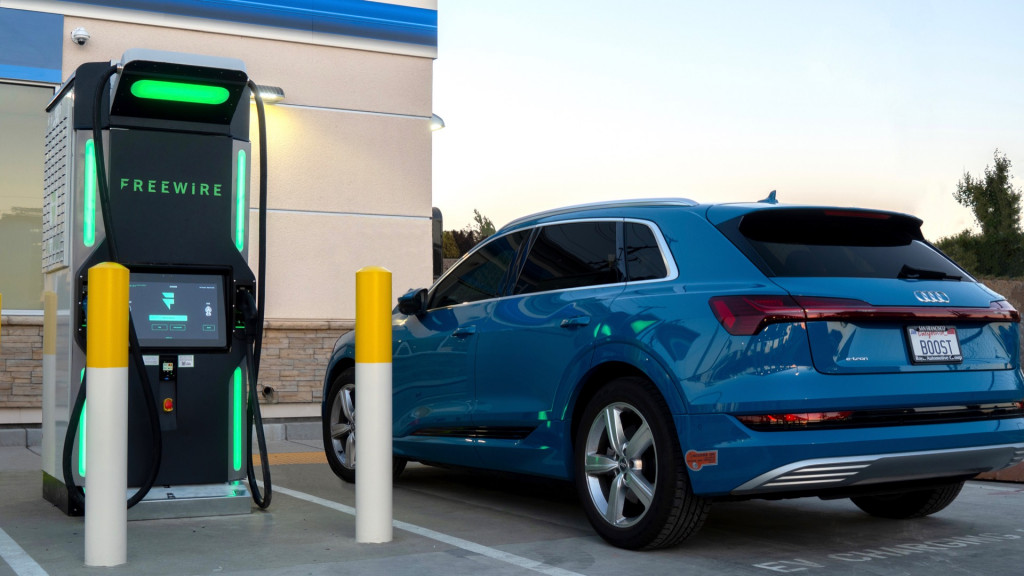BP Pulse, the charging-infrastructure unit of oil giant BP, is working with FreeWireTechnologies to get more of the company's mobile fast-charging stations installed in the United Kingdom.
Under a $50 million agreement, BP Pulse will use FreeWire Boost Charger stations as part of a network buildout that will include 700 or more public fast-charging stations by 2025, the two companies said in a press release Thursday.
Boost Charger stations use a battery buffer to "boost" onsite power, allowing fast-charging stations to be installed at new locations without grid upgrades. While conventional fast-charging stations require a dedicated power supply and other equipment, FreeWire has said its Boost Charger can connect to existing electrical infrastructure.
That makes such stations ideal for spots where there might not be enough traffic to otherwise justify the expense of a charging station, or where electrical service may not be robust enough to support a conventional fast-charging station.

FreeWire Boost Charger at convenience store
FreeWire previously quoted charging power of 120 kilowatts, with a 160-kilowatt-hour battery buffer. CHAdeMO and Combined Charging Standard (CCS) plugs are included, and an adapter is available for Tesla electric cars, the company previously said.
BP led a funding round earlier this year that raised $25 million for FreeWire. Volvo Cars invested in FreeWire in 2018, and earlier that year the company attracted a $5 million investment from BP.
In the United States, FreeWire has launched test deployments at BP-owned ampm convenience stores.
FreeWire isn't the only company looking unshackle charging stations from permanent infrastructure. Volkswagen has also developed and tested its own semi-mobile DC fast-charging solution for urban-network gaps.
